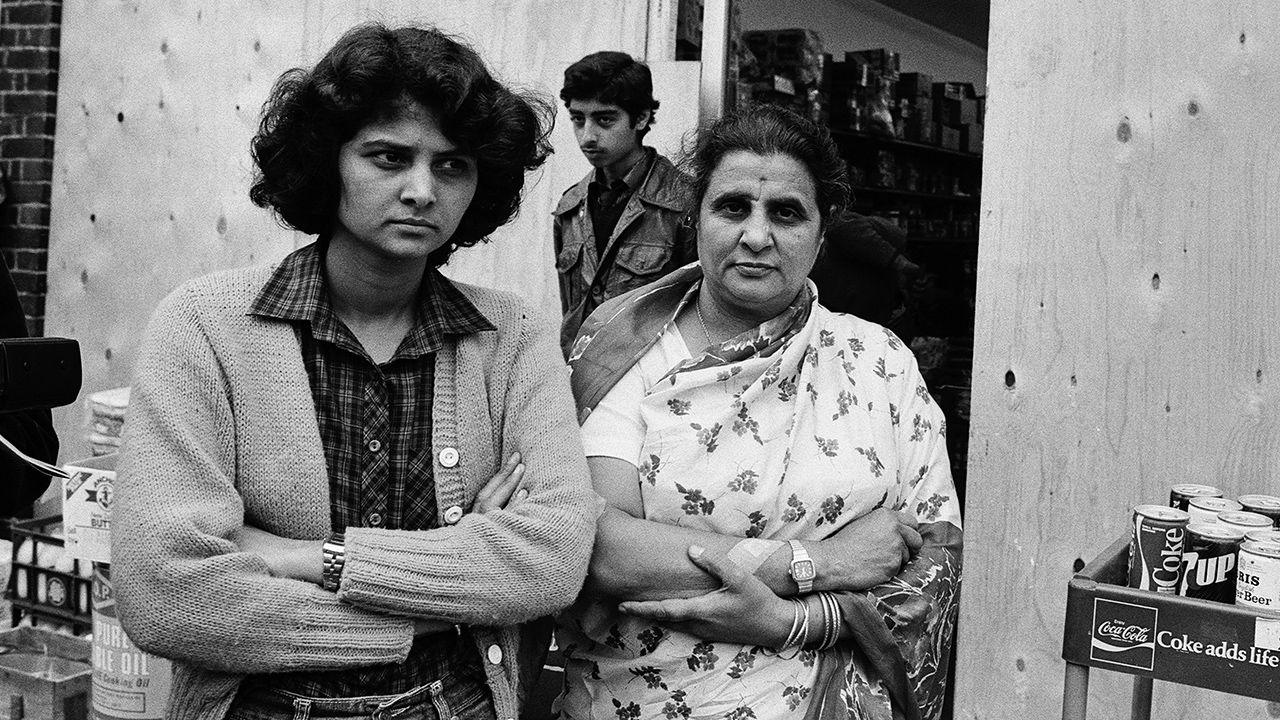'We couldn't leave our home for a week after riots'
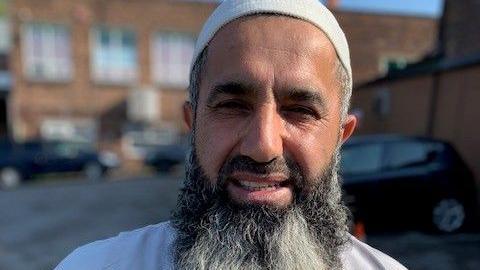
Farouk Farage said being housebound felt like prison for his children
- Published
Outside the mosque he manages in Stoke-on-Trent, Farouk Farage is reflecting on a "horrifying" few days in August, when riots unfolded in the streets.
“It was very hard...with my daughters, my son and my wife, we effectively stayed inside our house for a week.
"For some kids it must have felt like jail," he said.
The scenes they witnessed on 3 August were terrifying, with riot police deployed when hundreds of people protested in the wake of the deaths of three young girls in Southport.
Missiles were thrown at officers and Islamophobic chants directed towards the mosque, Sallahuddin Masjid.
Children in a dance show were locked inside a theatre for their safety.
Mr Farag said those who targeted them – yelling abuse and throwing stones at cars - have left a fear that is still being felt, an anxiety that can’t easily be shaken off.
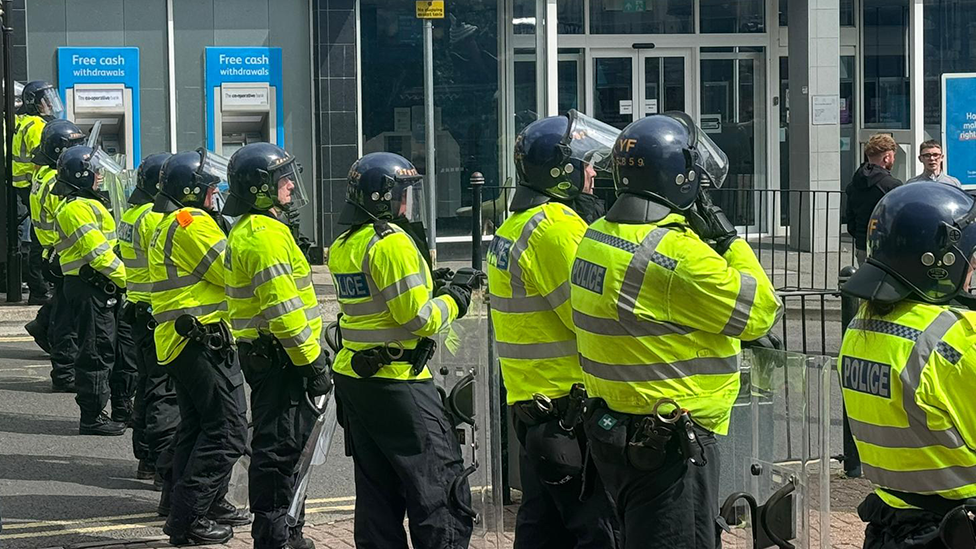
Riot police were deployed on the streets of Stoke-on-Trent
“There are around 3,000 Kurdish people in our community in Stoke-on-Trent who felt they couldn’t leave their homes for days”, he said.
More than £1.5m had been raised for a community centre and, when news of the disorder spread on social media, dozens of worshippers came to surround the mosque.
A rapid response security team was brought into Sallahuddin Masjid to guard the site day and night.
“We hope it won’t happen again and know that the police will do their best to prevent disorder," Mr Farage said.
"We are grateful to Staffordshire Police. Ever since we came here in 2016, we have had no trouble. We are all in this together, we love Stoke and try to build the city up."
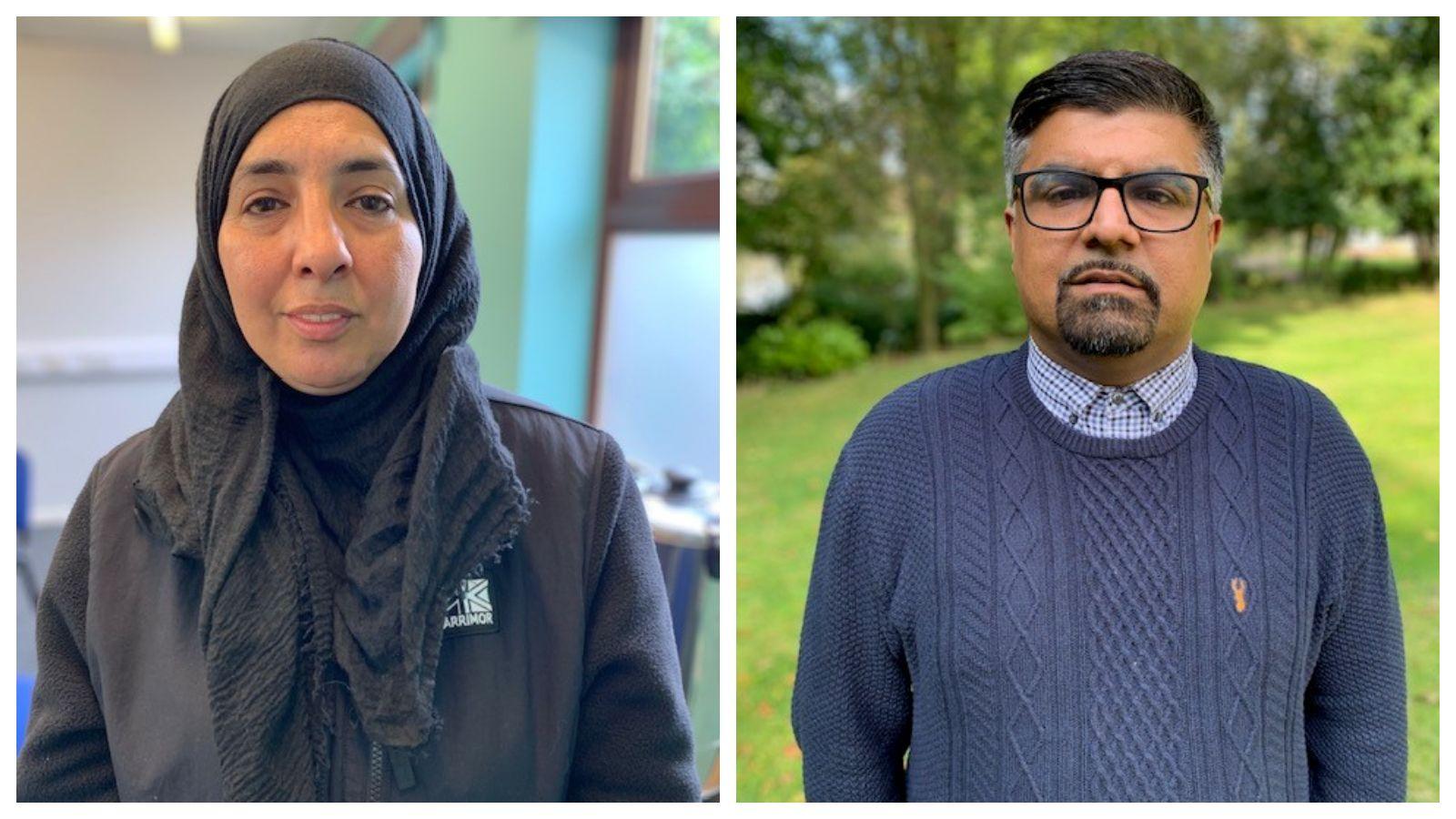
(left) Shazia Nasreen said Islamophobia needed to be take more seriously while Nasar Iqbal (right) said new approaches needed to be adopted to tackle it
BBC Midlands Today spoke to community groups about the impact of the riots, which followed the fatal stabbings of three girls in Southport on 29 July. Eight more children and two adults were also injured.
Anecdotally, they said they were aware of a rise in reports of hate crime offences, targeting Muslims in particular.
The Crown Prosecution Service reported that in the year to December 2023, 12,737 hate crime offences were prosecuted, of which 9,245 were on grounds of racial abuse.
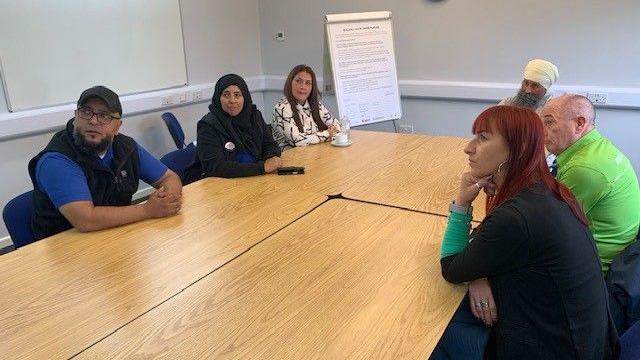
Members of Muslim communities said they still feel anxious a month on since the far right riots that took place in the Midlands
“It needs to be taken more seriously, Islamophobia is increasing since the riots”, said Shazia Nasreen, a Hate Crime Ambassador in Walsall.
She said she suffered verbal abuse just days after the riots while walking past a bus stop.
“A lot of people don’t have the confidence [to report it], first of all they feel it’s not a hate crime and secondly they think nothing is going to be done about it”.
She credited the police for their response to the riots but said she remained anxious leaving home for work.
'Islamophobia is increasing'
Her experience is helping to shape a new hate crime strategy in Walsall.
She works with Black Country Innovate, a social enterprise, who have helped to form a ‘hate crime pledge’.
Signed by the Leader of Walsall Council, senior police officers and multiple faith organisations, it promises an integrated approach to helping vulnerable people, who may be experiencing hate crime on grounds of race, religion, disability and sexual orientation.
“To protect the vulnerable we need to build trust with authorities and victims need to see justice”, said founder Nasar Iqbal.
“The fact that events occurred elsewhere but we felt an impact in Walsall is very common. A lot of people were suffering from anxiety – people we spoke to had cancelled their travel plans and holidays as a result of the summer disorder”.
After conducting research on hate crime with De Montfort University, Black Country Innovate will start free trauma coaching sessions for hate crime victims.
It must be the start of a new approach, recognising that people are experiencing abuse in person and online, Mr Iqbal said.
“The narratives have changed from 20 years ago. It’s become more complicated, and more people may be impacted."
Get in touch
Tell us which stories we should cover in Staffordshire
Follow BBC Stoke & Staffordshire on BBC Sounds, Facebook, external, X, external and Instagram, external.
Related topics
- Published3 April 2024
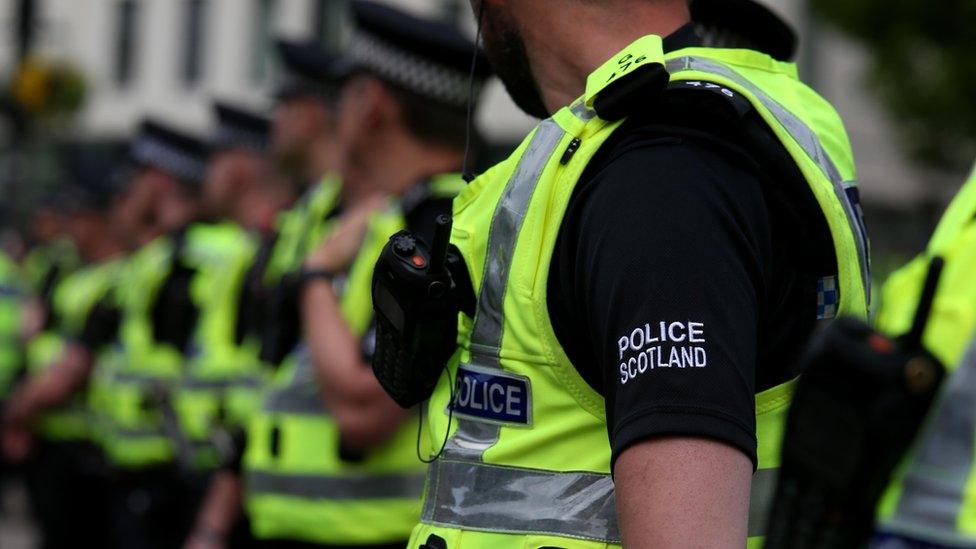
- Published10 August 2024
